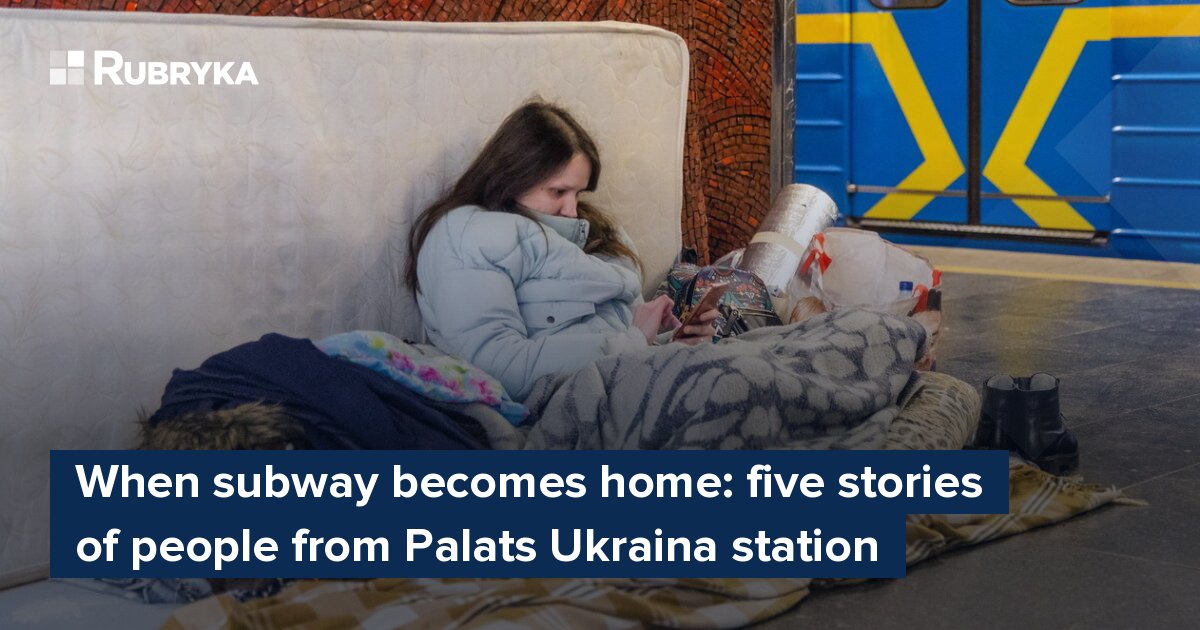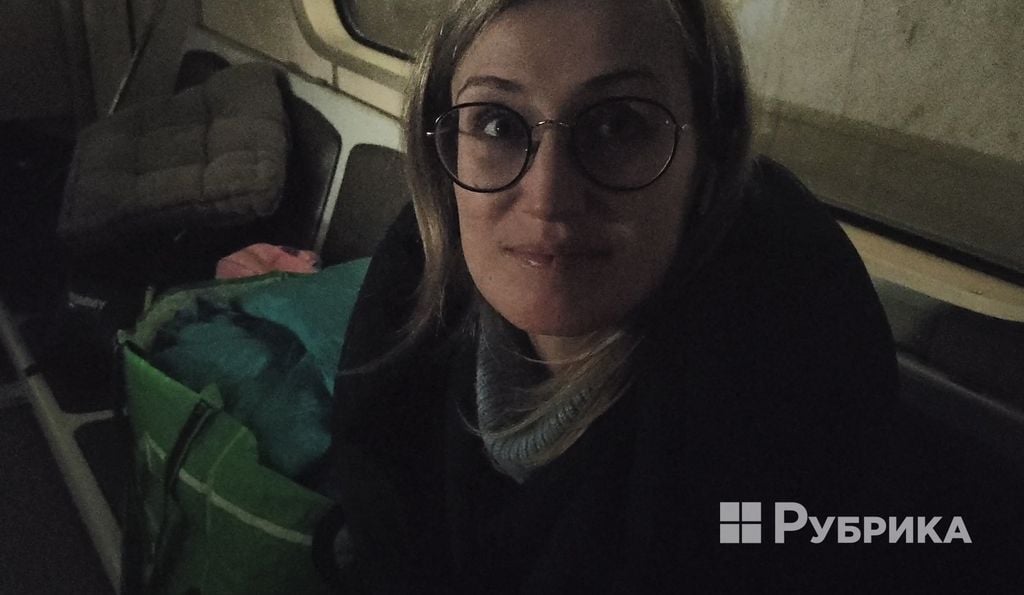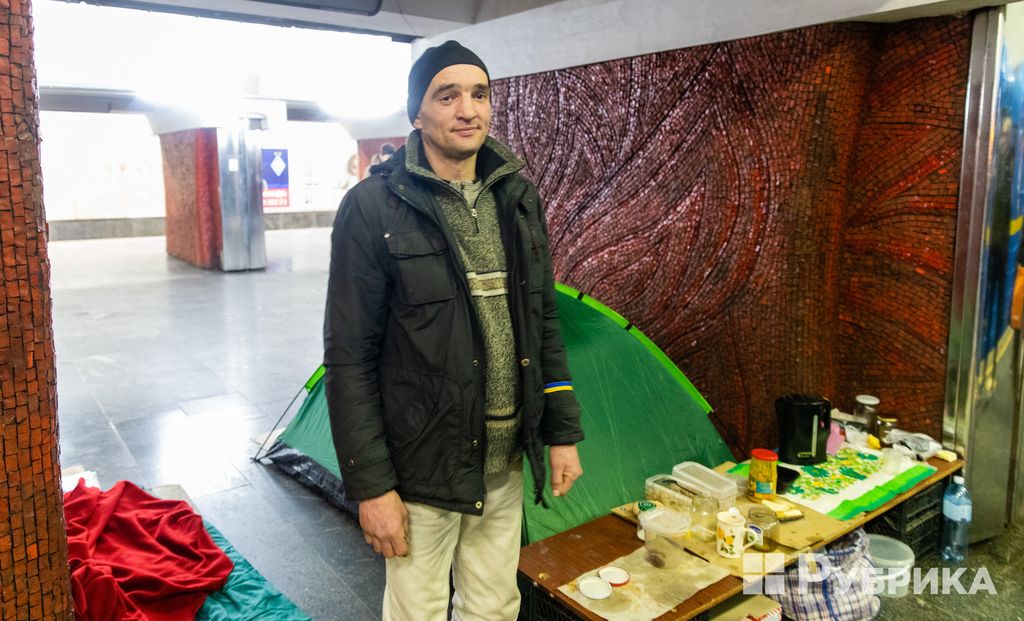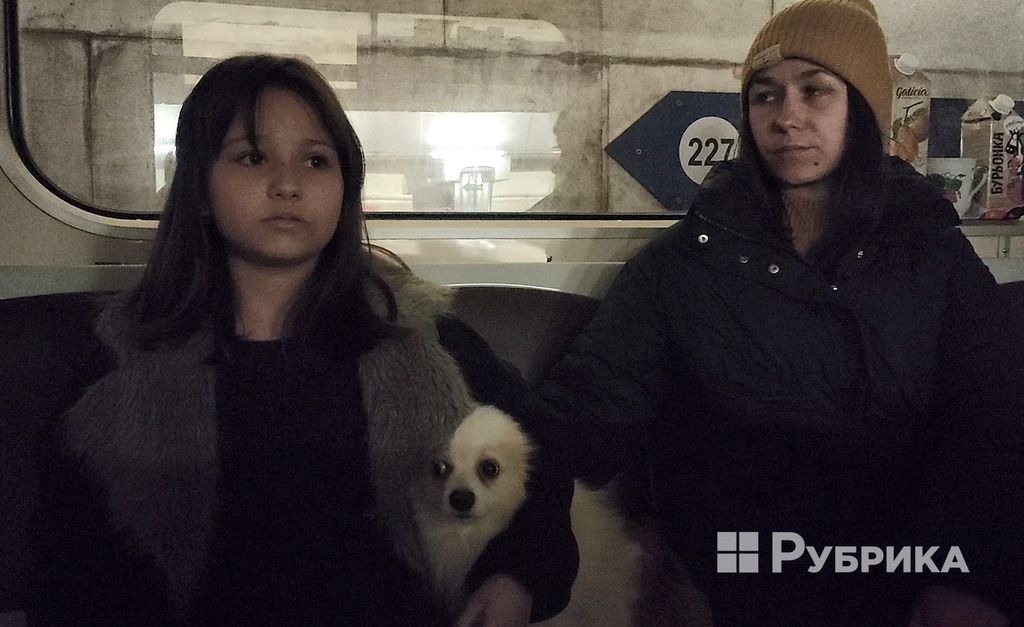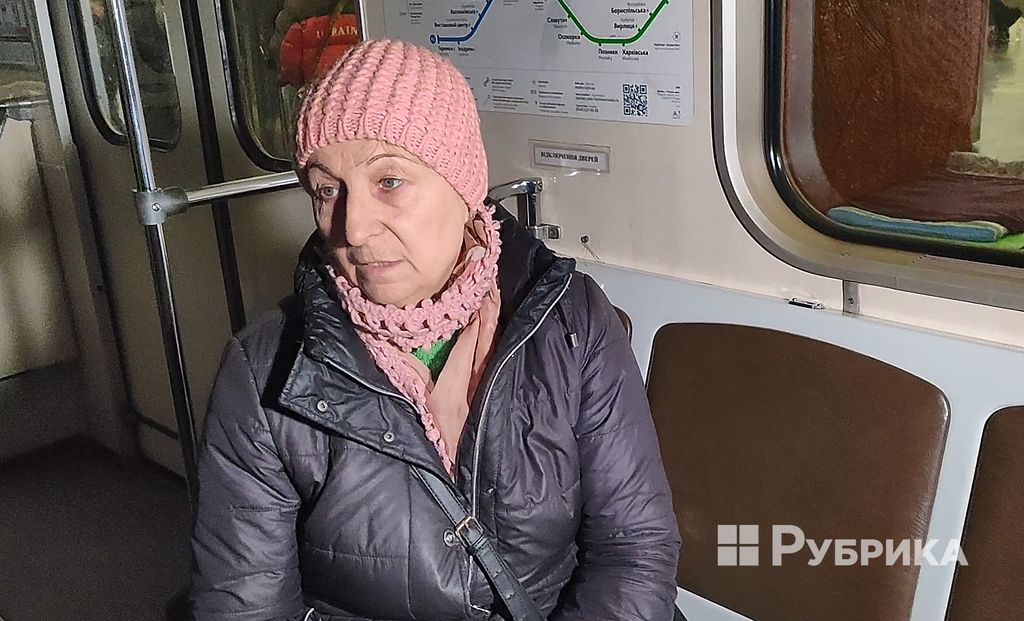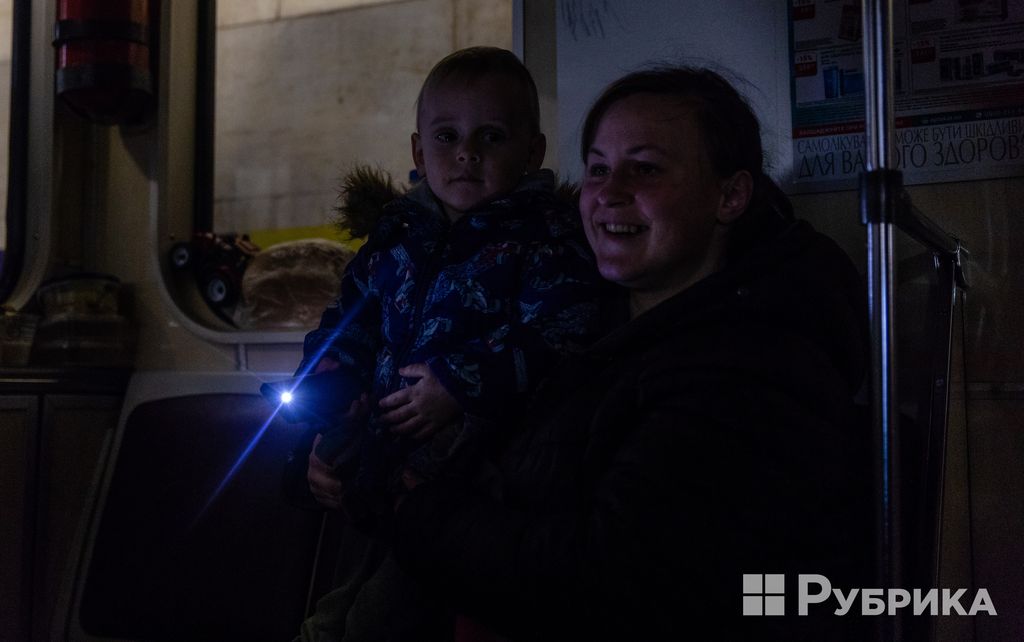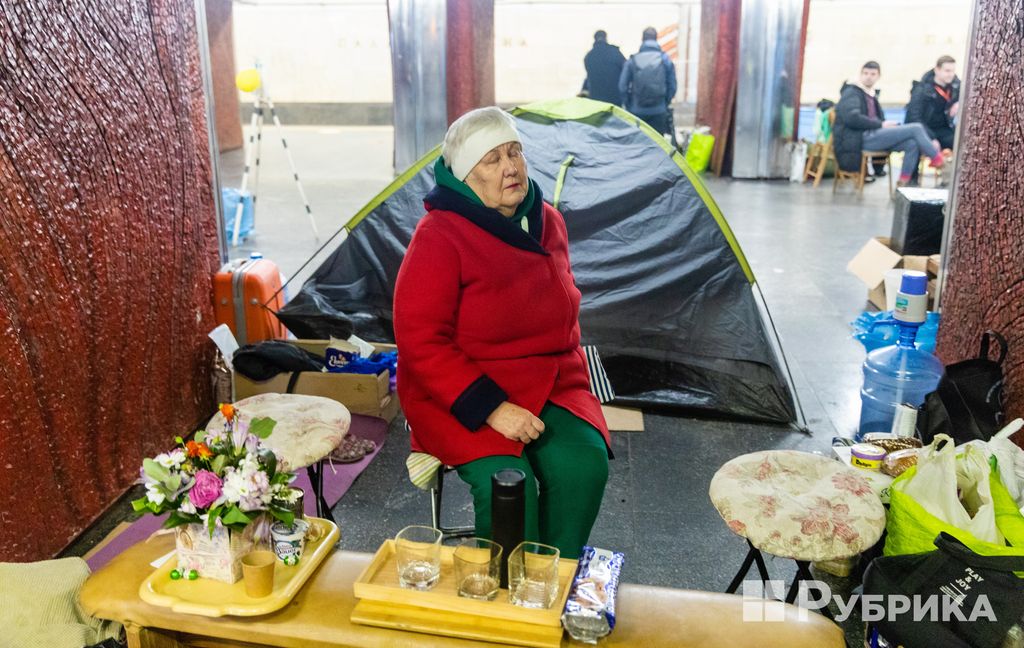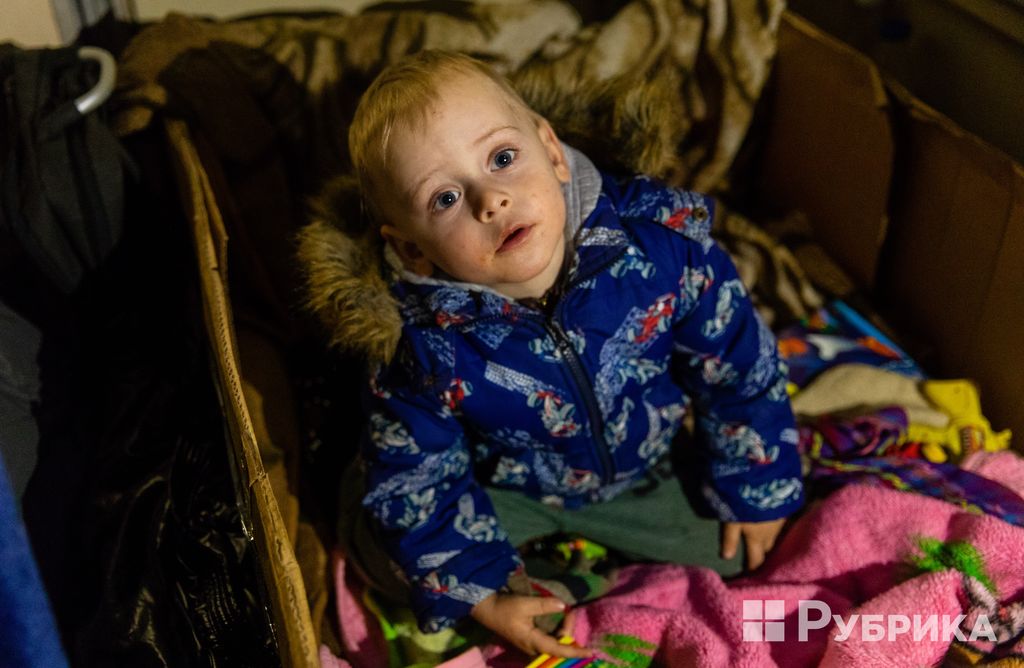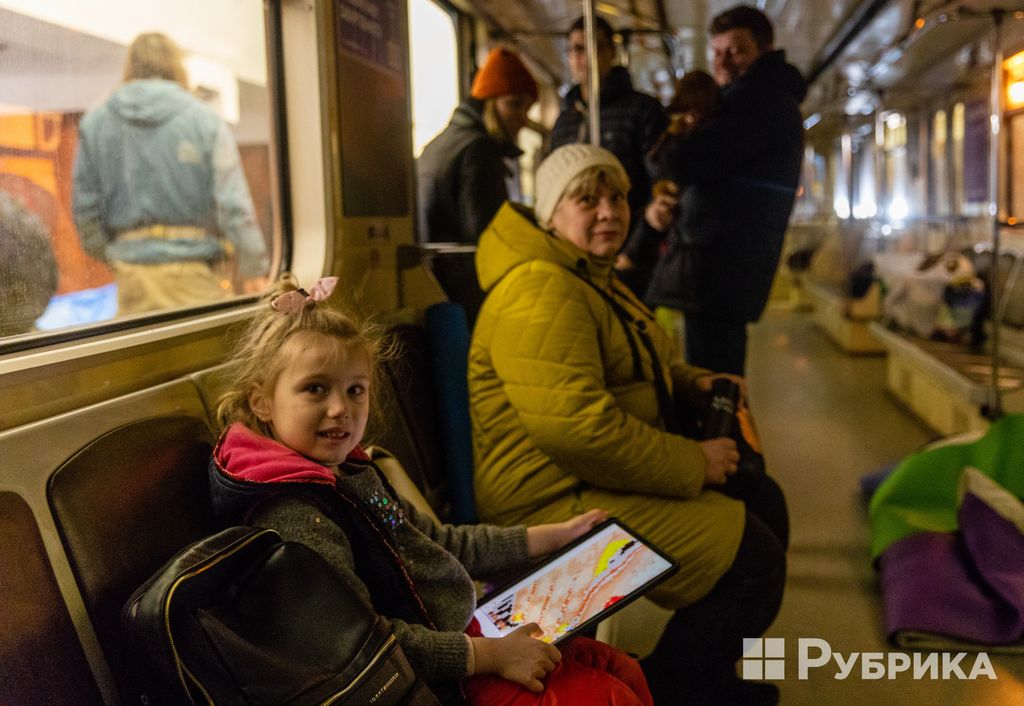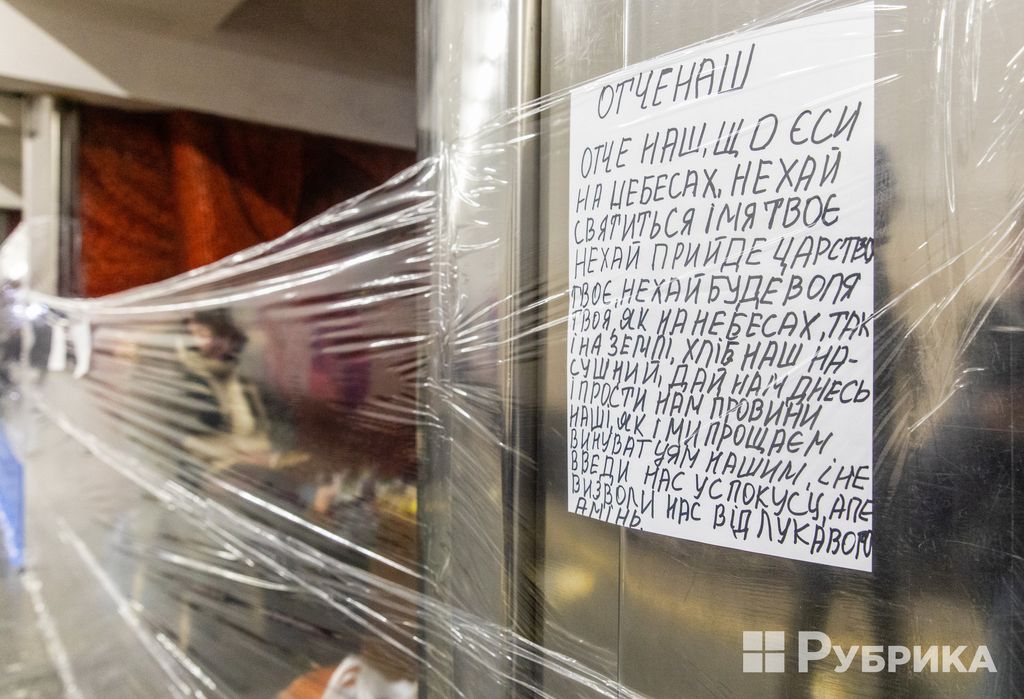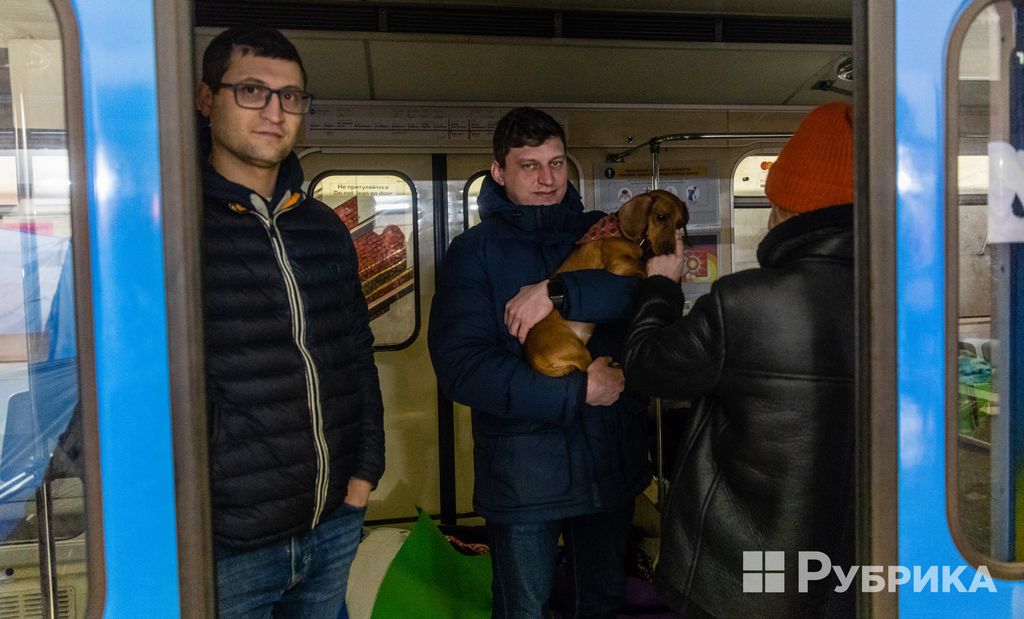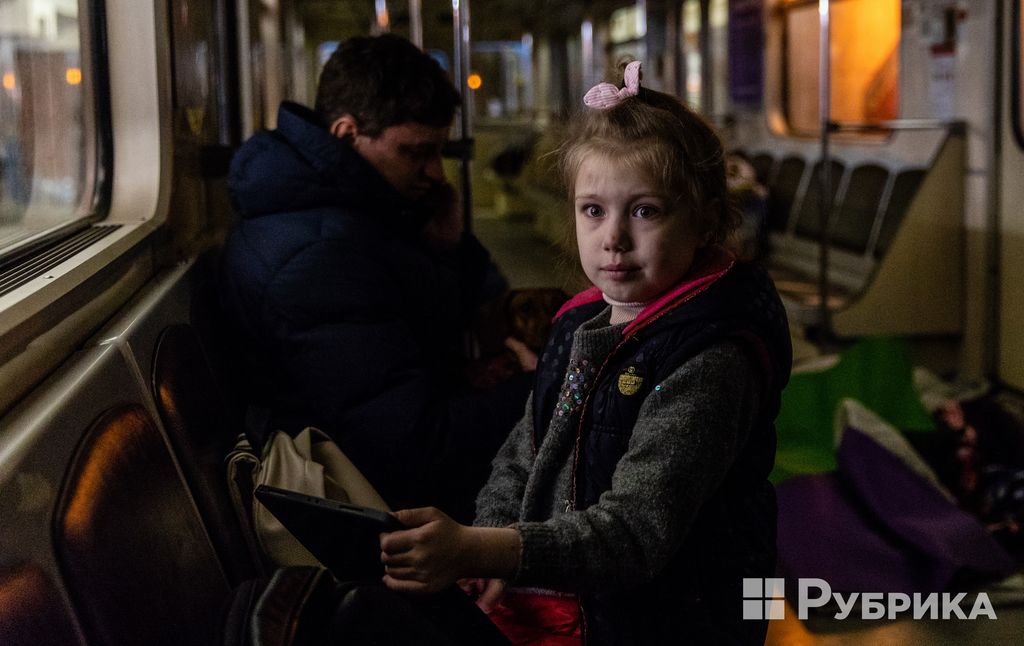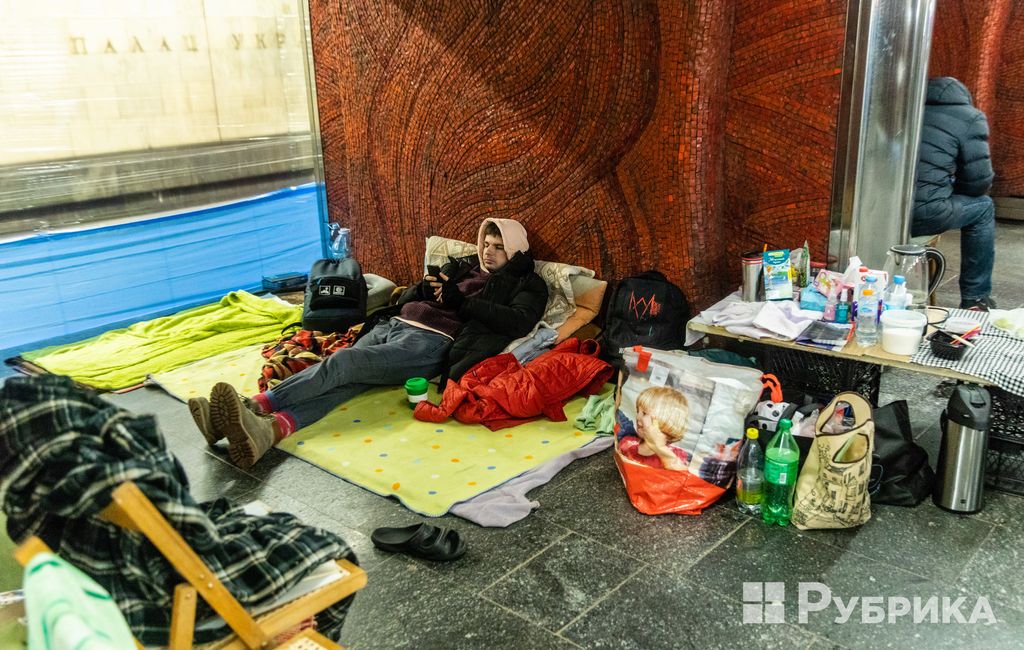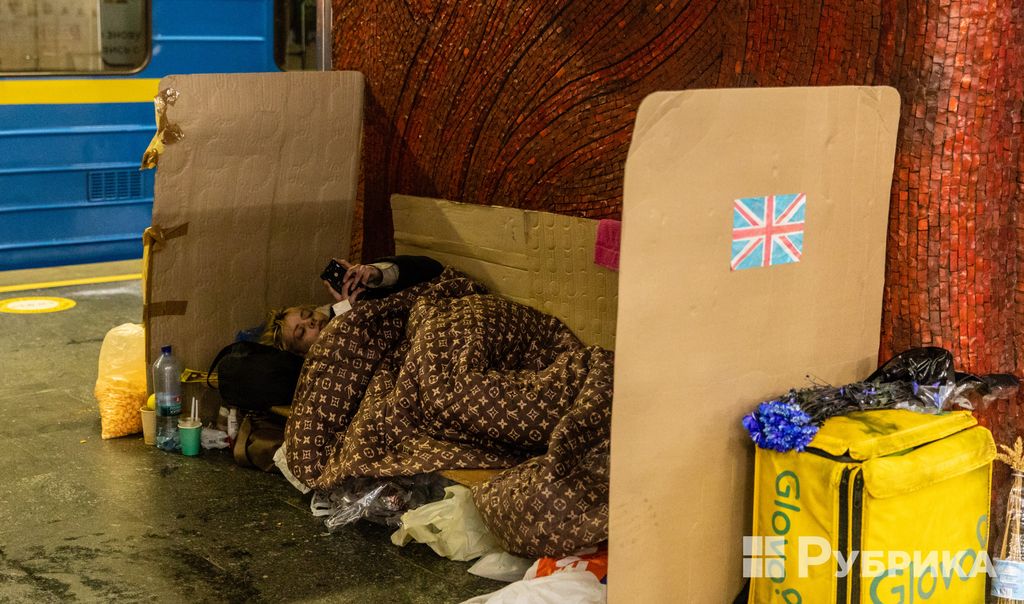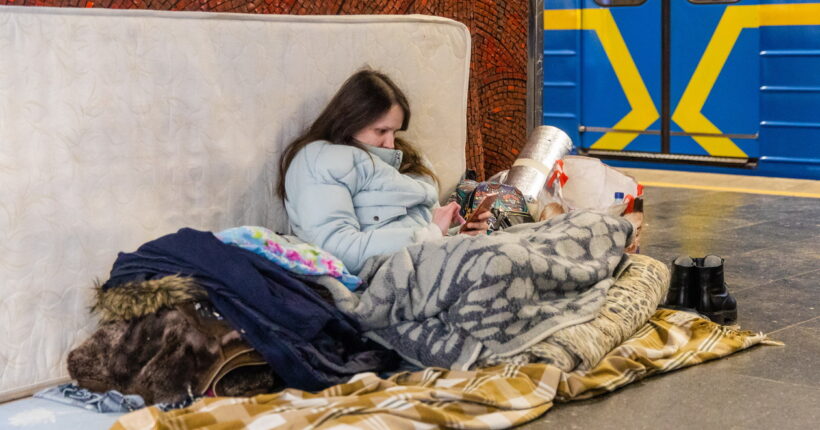
Russia's large-scale military attack on Ukraine has been going on for almost three weeks. Since February 24, the lives of millions of Ukrainians have changed: some have been forced to leave their homes, some have fallen into the trap of the Russian blockade, most hear sirens every day, and many of them hear explosions and shellings.
About 2 million people have left Kyiv since the beginning of the war. Those who remain regularly descend into shelters due to alarms and enemy airstrikes. The capital's subway became the largest shelter in Kyiv.
RUBRYKA visited the Palats Ukraina station, one of the central subway stations on the blue line, and talked to those who are now going down there in search of security. For some, the Palats Ukraina has almost become a new home…
"This station was built by my grandfather"
"We live next door and since February 26 we have been coming here to spend the night with family and friends. My parents have been here for a while. It's safer here than at home. We slept dressed for the first few nights. And we have a baby, plus a dog, plus my mother doesn't run very fast, so we've been spending the night here for two weeks.
During the day we change, someone goes to work, someone leaves to cook, someone goes home. We volunteer. What we can do at work, we're doing from here. I was currently attending an online webinar on combat trauma. I would've spent the night at home, but it's very deep here, there are no explosions, sirens, so the children here are under the illusion of safety. They're calmer.
We live in a panel house, and although there's a basement there, I understand that if it is hit, it will collapse (if our mayor reads this, they initiated an inspection of the shelters). And many of them are marked on the map, but in reality, they do not exist, or they are closed or completely unfit for life. It is unrealistic to sit with a small child in a wet basement on the floor. And not all of these shelters have ventilation. Not very well prepared. Probably no one expected this to become our reality.
This station was once built by my grandfather, he worked in the subway, so I know that this bomb shelter is safe and reliable, there is a spring with artesian water, hot and cold water, bathroom, electricity, ventilation. Of course, it's scary and difficult, but I try to take everything with a smile. "
Oleksii: "I want to go to the frontline"
"I've been here for two weeks. I'm from Cherkasy. There are no special difficulties here, in the subway, people help us, bring food, blankets. We also help each other here.
I was in Kyiv, working on the left bank, but when the war started I had to get to the right bank, to the office to get paid. So I stopped here. I want to help the guys from above, but there's a problem that movement is limited, I don't have a passport now, only a copy, so it is very difficult to pass checkpoints. People want to help. I hope they will help with the military registration and enlistment office, I want to go to the frontline. I can't sit still here. So far, we're helping women, children, our security here, because sometimes different people come on subway trains."
Dasha: "In Chernihiv, we sat in the basement for about 16 days, and then we left for Kyiv"
До розмови долучається мати Даші: "Найбільше страждають дев'ятиповерхові будинки, палають. Кожну ніч у вогні. Кожні 10-15 хвилин сирени. Кожен день прилітає в житловий будинок , гине багато людей. Руйнують лікарні, дитсадки, школи, бібліотеки. Ми поки тут, а далі побачимо".
"My name is Dasha, I'm from Chernihiv, we came here yesterday. We drove for about ten hours. In Chernihiv, we sat in the basement for about 16 days, and then we left for Kyiv. It was very scary, I heard some cars with peaceful people are being shot, and there were still many checkpoints, and we stood at some of them for a long time. Our house, thank God, was intact. But I don't know how it is today. I remember one night, the house was shaking. They shelled with Grads. The bomb fell on the district hospital nearby. Gagarin Stadium was smashed."
Dasha's mother joins the conversation, "Nine-story buildings suffer the most, they burn. Every night there are fires. Every 10-15 minutes a siren. Every day they hit some house, many people die. Hospitals, kindergartens, schools, libraries are destroyed. We are here for now, and we'll see how it goes."
Khrystyna: "We've begun to develop little by little, and they are angry, envious"
"I'm from Russia myself, I'm 50, and I left when I was 16. Nobody ever told me which language to speak. As you wish. I can speak Russian, I can speak Ukrainian. It's just nonsense, they invented a reason to attack Ukraine. Because we've begun to develop little by little, and they are angry and envious. I wish we could bring Skabeeva, Solovyov here and show them. Mariupol, Kharkiv, Chernihiv, Sumy, Okhtyrka. Look them in the eye. And spit at them. Bastards."
Vita: "We really want to go home"
"I'm from Kyiv, it's been a long time. Seven days. I live nearby, it's calmer here, there are no explosions, sirens. My son's name is Denys, he's almost three years old. It depends, sometimes you like it, sometimes you don't. We are leaving to walk on the street. We really want to return home."
The war changed many things for Ukrainians. Subway is one of them. Now, descending to it, it is unlikely that there will be a person who doesn't thank for what the subway became for thousands of Ukrainians during the war. Shelter. The island of safety. The second home.


